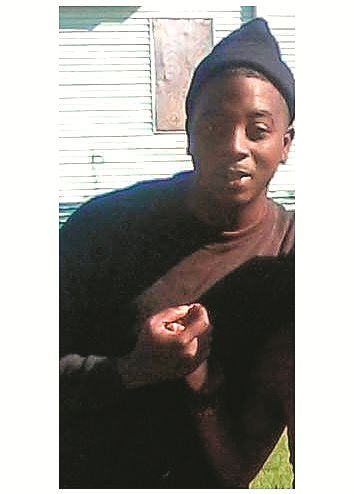
Photo courtesy of Roxane Adams.
If you think Virginia solved its hospital bed shortage problem after state Senator Creigh Deeds and his son were turned away from a local community mental health center with tragic results, you are wrong. Deeds’ son, Gus, attacked his father with a knife and then ended his own life in 2013 after being told there were no crisis care beds available locally.
The news story below is yet another black eye for my home state, which has failed to adequately deal with mental health problems despite promises made after the Virginia Tech shootings in 2007 that left 33 dead.
After you read it, you will understand why mental health reform must include discussions about crisis care beds, state hospital beds, and community housing, as well as CIT and jail diversion.
Death of a young black man in a Virginia prison sparks outrage
Jamycheal Mitchell allegedly stole $5 worth of junk food from a 7-11. Four months later, he was found dead in a jail cell.
Local activists are incensed over the death of Jamycheal Mitchell, 24, in a Portsmouth, Va., jail this week. Mr. Mitchell had a history of mental illness, said local paper The Virginian-Pilot, and he was being held awaiting transfer to a mental hospital.
Mitchell’s body was found at the Hampton Roads Regional Jail four months after he was charged with petty larceny and trespassing. Portsmouth police arrested Mr. Mitchell on April 22 after he allegedly stole about $5 worth of food from a 7-11: a candy bar, a snack cake, and a soda.
Portsmouth Police and Hampton Roads Regional Jail failed to respond to requests for information on this case.
According to the Virginian-Pilot, a judge had found the apparently bipolar Mitchell incompetent to stand trial on May 21 and ordered him into the care of “qualified staff” at a state mental health facility in Williamsburg, about an hour away. For the past three months, Mitchell has remained in jail, waiting for a bed to become available.
He was found unresponsive in his cell about 5:45 a.m. local time on Wednesday, Aug. 19, and he was pronounced dead shortly thereafter. “His body failed,” his aunt told the British newspaper the Guardian, saying that he had lost some 65 pounds while on a hunger strike.
The official cause of death is still under investigation by the state medical examiner. Master Jail Officer Natasha Perry told the Associated Press that he died of natural causes.
“This is what happens when we jail folks for petty crimes and not aggressively seek the next step in the existing mental health system,” wrote Lana Pressley, founder of the Four Rivers Project, which works to restore the civil rights of former inmates in Virginia, in a Facebook post. “Who dropped the ball, who didn’t make the calls, who will bear the blame?”
In an interview, she says, “They say there was no bed at the mental health facility. OK, so how about the next day or the day after that? You see a man wasting away in front of your eyes and you can’t find your humanity long enough to call his family? Call a mental health professional? Do something?”
“If his mental health was really the issue, then somebody needed to be on that continuously. He needed to be in a hospital from the very start, not a jail cell,” says Ms. Pressley, who is also the president of a local civic league.
Local activist and former candidate for mayor of neighboring Norfolk, Va., Michael J. Muhammad, told the Monitor that he agrees that Mitchell should not have been jailed over the alleged petty crime.
Two issues are at play, he says: race and the failing mental health infrastructure.
“What we’re finding is that a young man who is accused of a crime that did not exceed five dollars is being held for four months,” he says. “We are also seeing that white people are not being charged in the same ways as black people in the communities here. White people are given passes or bonds for the same crimes.”
He describes another young person of color who “has been in jail for over a year – which has exceeded the time he would have served for the crime – because he suffers from mental illness,” Mr. Muhammad says.
“When a person is found to be mentally unstable or incompetent to stand trial, the proceeding process stops – but they are still held in the process as if they’re being punished,” Muhammad says. “Mental illness should not result in punishment. It should result in services.”
If we charge ranchers and pet owners with criminal neglect for letting their animals waste away, says Muhammad, “what should be the process for a human being? Surely the jail personnel, the sheriff, the people in charge of that jail should have been aware that that young man’s situation had become extremely dire.”
Pressley disagrees about the role of systemic racism, saying, “This is not a black issue, this is a humanity issue. Somebody needed to find their humanity and look after this young man.”
She asks, “Where are we as a society when a young man is so hungry he steals food to survive and dies in a jail cell of hunger?”




